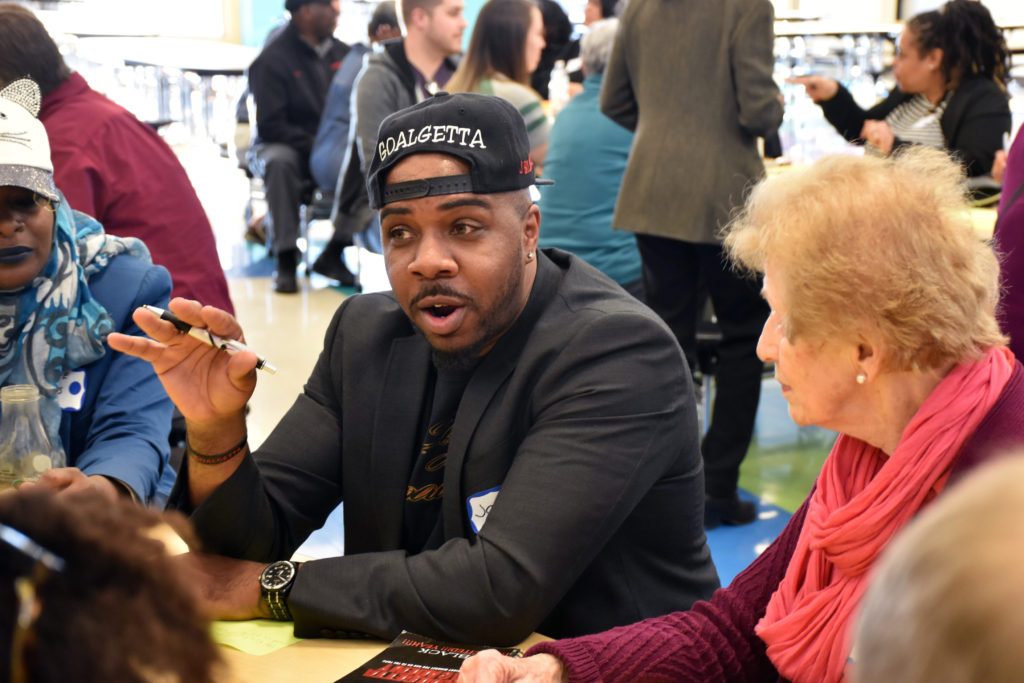News
Journalists Ask Athens Community to Set the Agenda
By: Doug Oplinger | Your Voice Ohio
Posted on:
Across Ohio, journalists have been holding community conversations to ask: What will it take to make life better here?
The next media sponsored conversation, open to the public, comes to Ohio University in Athens, 6-8 p.m. Thursday Nov. 21, with food and open table conversations about what people in Southeast Ohio communities need to improve life in this unique, picturesque area of parks, history, universities and economic challenges.
Will a better life come from a trade agreements with Great Britain? A new coal mine? Better public education? Affordable health care? A downtown improvement district? Additional funding for senior services? Higher gas taxes to fix roads?
In other communities, the answers to a better life have often differed from public policy enacted at the local and state levels.
The listening events are part of the Your Voice Ohio media project, in which journalists sit with people in their communities to better understand and represent the people in the 2020 state and national elections — before candidates come to town and define issues the way they want. This session is co-sponsored with Ohio University and the Ohio Debate Commission.
What journalists have learned in the last two years listening to more than 1,200 people discuss addiction, the economy and defining a new future is that people and candidates have very different ideas.
Southeast Ohio provides a unique backdrop for the next conversation, unlike industrial cities and farm towns visited so far by Your Voice Ohio journalists. The region that includes Athens, Logan, Marietta, McConnelsville and Pomeroy is one of Ohio’s most picturesque, but the Appalachian foothills, winding roads, technological limitations and closed coal mines bring challenges:
- With nearly one in every three people in poverty, Athens County has the highest poverty rate in the state, and has been among the highest for half a century. Hocking, Meigs and Washington counties are all higher than the state and U.S.
- Meigs County suffered the most precipitous drop in goods-producing jobs of any Ohio county, About 80 percent of what are often the best-paying jobs disappeared after the peak in 1977 — a 40-year decline.
- Among Ohio’s 88 counties, median household income is $42,105, or 8th from the bottom for Meigs, and $44,247, or 17th from the bottom for Athens. Athens’ median household income is 33 percent below the U.S. rate.
- Nearly one in 10 Athens County residents do not have health insurance, which is slightly higher than the state rate of nine. The three other counties have participation rates higher than the state.
- Residents of Hocking, Washington, Meigs and Athens county are less likely to have broadband internet subscriptions than both the state and the nation, limiting their ability to check on Social Security benefits, do online banking, communicate with the doctor or check on a child’s homework.
- The region is far less diverse than the state and the nation.
- Unlike most rural areas with little or no local source of local news, Athens has a robust local news media covering business, entertainment and government.
The conversations are open to the public and sponsored by the Athens Messenger, Athens News, WOUB Public Media, Logan Daily News, Perry County Tribune, The Courier of Jackson and Vinton counties and Your Voice Ohio, which is a statewide media collaborative of more than 50 news outlets. Other sponsors include the Ohio Debate Commission and Ohio University.
People will sit at tables as equals with journalists and leaders to discuss what their hopes are and how those might be achieved. Themes have emerged across the state, as have special needs for each community.
The questions journalists will ask residents are:
- What does a community look like where people are happy and live fulfilled lives?
- What would you change about your community to move in the direction of happy and fulfilled lives?
- What are the assets of the community that can be applied to making change?
What are actions that can be taken by leaders, people and journalists to can bring about those changes?
The experience across the state is that people ask news outlets to write about solutions that offer hope.
In previous meetings, journalists and public officials walked away with ideas that came from respectful dialogue. In Akron, for example, a simultaneous scientific telephone poll suggested people were concerned most about road repairs, snow removal and inadequate government services. But when about 200 met in dialogue, the conversations became more complex, they identified shared concerns and developed solutions. People also realized that they have a role and were energized by what they could do.

In Warren, the urban area to experience the steepest and longest economic decline in Ohio, residents said that the community should stop waiting for outside help and instead focus on sustainability and resilience from within.
After the session, one Warren resident wrote this thought to be shared: “Our community as a whole is loving, challenging, empathetic, and resilient. We want to rise to set the example for the world again! We just need to come together on where to begin.”
What is the path toward happy and fulfilled lives?
Join the two-hour conversation, which is open to the public. Food will be served.
Please register by visiting this web site.
6-8 p.m. Thursday, Nov. 21, Nelson Hall, Athens University, 10 North McKinley Ave., Athens.
More information also available at the Your Voice Ohio events page.
Contributing data to this story was former Akron Beacon Journal investigative reporter David Knox. His statewide data analysis is available on the web.
Doug Oplinger is former managing editor of the Akron Beacon Journal and now leads the news engagement of Your Voice Ohio. He can be emailed at doplinger@yourvoiceohio.org. The Jefferson Center, a civic engagement non-profit in St. Paul, designs the community conversations and manages the website.

